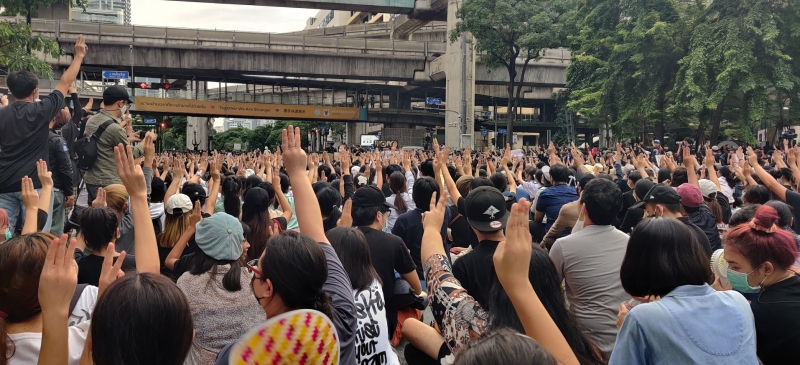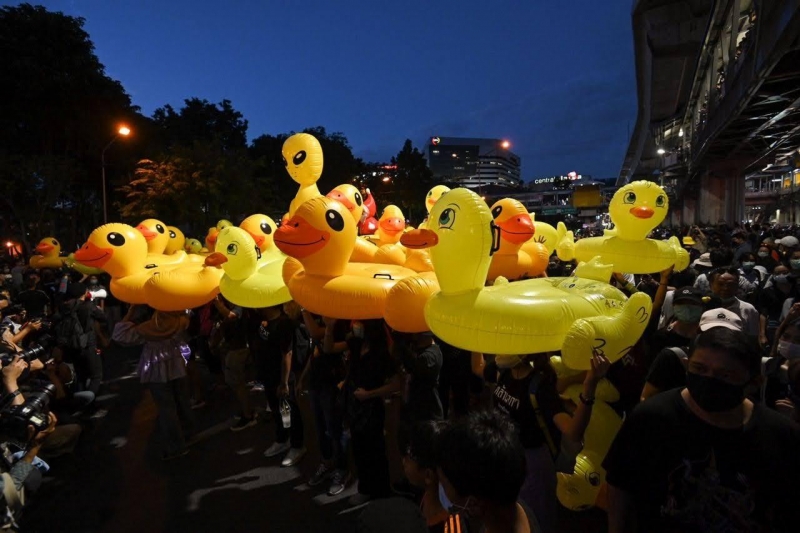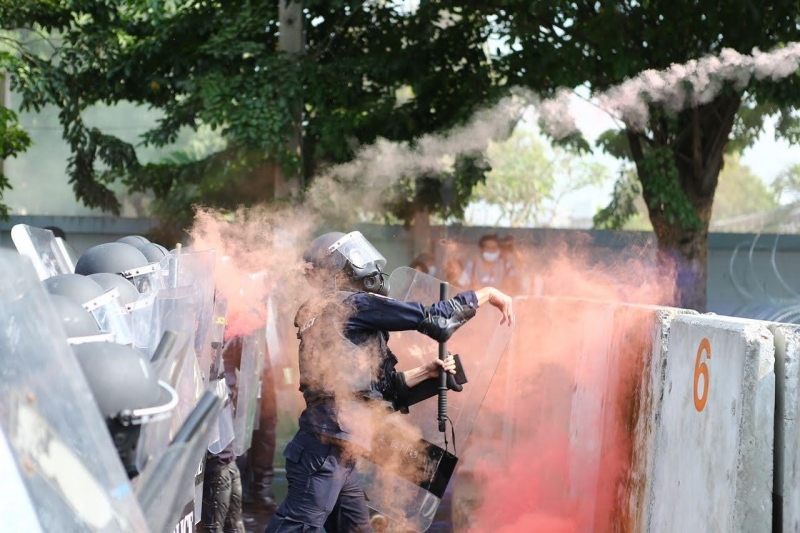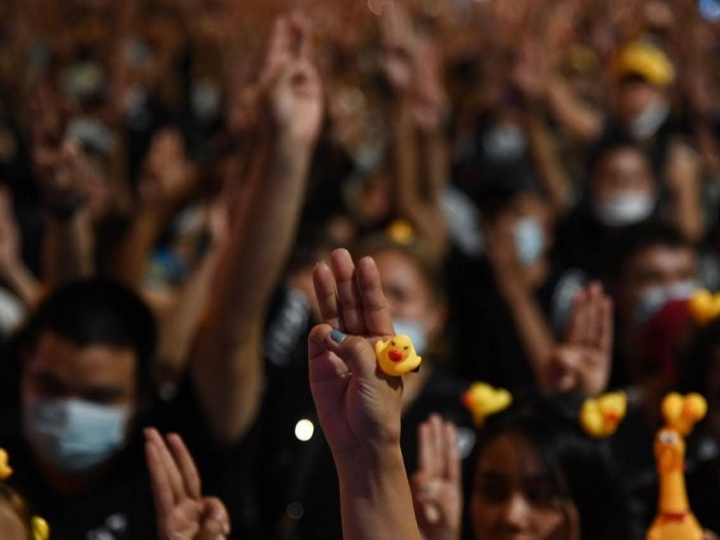The majority of the protestors are people between 18-35 years old, and children (under 18) have been instrumental in organizing protests. The protests have remained uniquely leaderless and the issues they raised have been very diverse, but three core demands form the main message that has been raised consistently throughout. These are the resignation of Prime Minister Prayut Chan-o-cha, constitutional amendments, and reforms of the Monarchy.
The protestors have been creatively organizing their rallies using pop-up protest tactics - the use of dark colour shirts as a disguise, symbolism such as Harry Potter, rubber ducks, and the fast communication via different social media platforms have been used similarly to the Hong Kong protest. Protesters are using the three-finger salute from the American film the “Hunger Games” as a symbol to show solidarity and determination to move forward with the demands.

"The extensive list of charges that is being filed against people are meant to invoke fear, lose hope, and eventually stop people from protesting against the government. Nevertheless, the protesters find that the charges only represent the insecurity of the authorities and those who are in power."

These tactics makes it difficult for the conservative authorities to monitor and follow the movements of the protest. Nevertheless, the authorities have slowly adjusted their plans by increasing the number of police, physical protest disbursement tactics, judicial and extra-judicial harassment strategies. The police used water cannons on protesters on three occasions, where they twice mixed the water with irritant and dyed materials - which also impacted bypassing children as well as at least six others to the point that they had to be admitted to the hospital. According to international standards, the police and other authorities have a duty to assist and facilitate the protests and make sure that the protesters are safe and able to voice their demands to the government. Though, in many rallies, the police outnumbered the protesters. However, in other rallies, the absence of police led to clashes between royalists supporters and pro-democracy protesters. Live ammunition has been used by unknown shooters in some protests.
Judicial harassment is also being used as a tool to create a chilling effect among protest leaders and activists. By December 2020, 37 activists had been charged with Penal Code Article 112 and 110 under the controversial “Lèse-majesté" law - royal defamation - which can impose jail sentences between 3-15 years for victims, including persons as young as 16 year old. The law itself has a broad interpretation, includes no transparency in the judicial procedure and does not comply with international standards of freedom and expression. Charges against the protesters range from laws against sedition, violation of the emergency decree announced during COVID-19, vague ban on public assembly, computer crime acts and more trivial charges as violation of public cleanliness and disturbance of traffic. Penguin, a student activist, has faced 11 summon charges which could lead to up to 165 years in prison.

The extensive list of charges that is being filed against people are meant to invoke fear, lose hope, and eventually stop people from protesting against the government. Nevertheless, the protesters find that the charges only represent the insecurity of the authorities and those who are in power. Many taboos and previously unspeakable subjects have been raised and discussed during the protests, and have created a new unstoppable wave of ideas and critical thinking in Thai society. Various human rights issues, a democratic system, and good governance are the core foundations of what the protesters are asking for. With the long suppression by the government in all dimensions, from housing, food, health care, education, security, livelihood, genders, minority issues, to freedom of expression and enforced disappearance, the conversation in Thailand can only continue.
All photos: Petcharat Saksirivetkul.
The NHRF invites different actors within the human rights field to contribute on this blog. The opinions expressed here are those of the authors.


